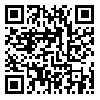جستجو در:
مقالات پذیرفته شده در نوبت انتشار
برگشت به فهرست مقالات |
برگشت به فهرست نسخه ها
1- assistant professor of English language and literature, Golestan University ، Marzieh.nodeh@gmail.com
2- MA graduate of English language and literature, Golestan University
3- assistant professor of English language and literature, Golestan University
2- MA graduate of English language and literature, Golestan University
3- assistant professor of English language and literature, Golestan University
چکیده: (270 مشاهده)
This study applies Martin Seligman’s PERMA model of well-being to Haruki Murakami's Norwegian Wood, offering a positive psychology perspective on the novel. According to Seligman, well-being comprises five dimensions: Positive Emotions, Engagement, Relationships, Meaning, and Accomplishment. Using a qualitative literary analysis, the research examines Toru Watanabe’s journey of love, grief, and self-discovery by identifying and interpreting textual elements aligned with the PERMA model, demonstrating how these elements interplay in his pursuit of well-being. By analyzing Toru's relationships and emotional experiences, the study examines the transformative role of positive emotions and meaningful engagement in navigating life’s adversities. The dynamic nature of accomplishment is also highlighted, showcasing Toru’s resilience and his ability to find fulfillment in the face of challenges. The findings reveal the nuanced integration of positive psychology principles within Murakami's narrative, emphasizing the interplay of emotional connection, purpose, and personal growth as pathways to flourishing. The study concludes that Norwegian Wood not only encapsulates the complexity of human flourishing but also underscores the resources and pathways available for cultivating a meaningful and resilient life. These insights contribute to the broader understanding of literature’s potential to illuminate the principles of positive psychology and human well-being.
نوع مقاله: مقالات علمی پژوهشی |
موضوع مقاله:
روان شناسی زبان
ارسال پیام به نویسنده مسئول
| بازنشر اطلاعات | |
 |
این مقاله تحت شرایط Creative Commons Attribution-NonCommercial 4.0 International License قابل بازنشر است. |






